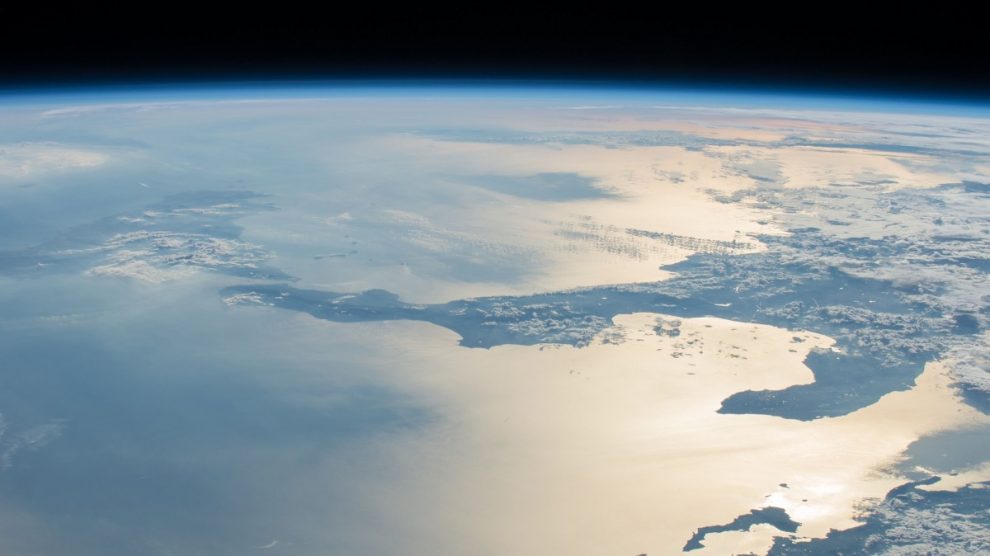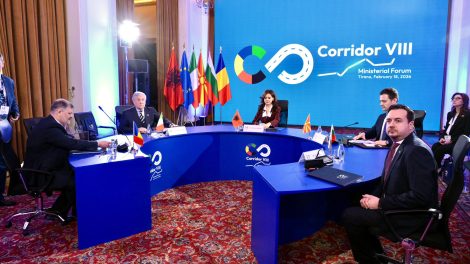Why It Matters. Both governments argue that the Mediterranean is no longer a peripheral theatre, but a strategic axis that will shape Europe’s future—on security, energy, and its role on the African continent.
The Opening Message. Alfredo Mantovano, Undersecretary to the Italian Prime Minister and delegated authority for national security, set the tone early:
- “Italy and Spain face an unprecedented migratory pressure,” he warned, stressing that the fight against irregular flows must go hand in hand with more effective legal channels.
- Ignoring Africa’s centrality, he cautioned, would be “a strategic mistake that has already been made—and must not be repeated.”
Mediterranean as a Global Chessboard. Marco Minniti, President of the Med-Or Italian Foundation, outlined the Mediterranean as a fulcrum of global competition:
- “Various critical games for global stability are being played here,” he said, pointing to the Middle East, Tunisia and Turkey as decisive political and geographic nodes.
- He described Lebanon’s fragility, tensions in the West Bank, China’s footprint in the region and the evolving Libyan file as “pieces of the same chessboard.”
- However, for Minniti, one essential element is that the “plan for Africa” must be European, not the sum of national initiatives.
Spain’s View. Ana Palacio, former Spanish foreign minister, stressed the long historical presence of Rome and Madrid in the region:
- “Italy and Spain must recover influence in Africa,” she argued, highlighting maritime cooperation and joint operations, such as Mare Nostrum.
- The warning was clear: without a recognisable European role, other actors will step in.
Security and Migration. The first roundtable quickly shifted to operational challenges. Claudio Galzerano, Director of Immigration and Border Police at the Italian Interior Ministry, summed it up:
- “The real match is played in countries of origin.”
Reception systems, he noted, cannot absorb new waves without significant strain. - Carmen González Enríquez, Senior Fellow at the Real Instituto Elcano, presented the Spanish approach, legal pathways and bilateral accords: “A model based on regular migration is possible,” she said, citing the decreto flussi mechanisms in Rome and Madrid.
- But without a structured EU framework, she warned, national efforts will remain partial.
Energy: Infrastructure and Influence Energy was another pillar of the debate.
- María Teresa Nonay, Strategy and Planning Director at Enagás, described the Mediterranean as a human, political and energy crossroads, insisting that Europe must maintain a preeminent presence to avoid new dependencies.
- Lorenzo Ortona, Deputy Coordinator for Italy’s Mattei Plan, linked energy security to Italian initiatives in Africa: “The Mattei Plan is a soft-power tool, but also a platform for equal cooperation and long-term planning,” he said, noting that the Elmed interconnection between Tunisia and Europe carries significance “beyond its technical dimension.”
- Italy, he added, is investing not only in energy assets but in human capital, training young Africans in renewable technologies, “a political investment as much as an economic one.”
- Marco Piredda, Head of International Affairs Analysis & Business Support at Eni, underscored the strategic shift: “Elmed is the future of Euro-Mediterranean energy supply,” explaining how strong partnerships in Africa enabled Italy to compensate for lost Russian gas quickly.
- Energy security, he stressed, is inseparable from political stability on both shores.
The big picture: The Sea That Will Shape Europe’s Future
- From maritime security to energy corridors, from regular migration to geopolitical competition, everything converges in the Mediterranean.
- Italy and Spain, by geography and history, are on the front line of a sea that is no longer just a border, but a global pressure point.
The takeaway from the Med-Or–Elcano Dialogue is unambiguous:
- The Mediterranean is Europe’s strategic centre of gravity.
- Its stability underpins the continent’s national security, energy resilience, economic strength and industrial future—those who forget this risk being overtaken by events.





